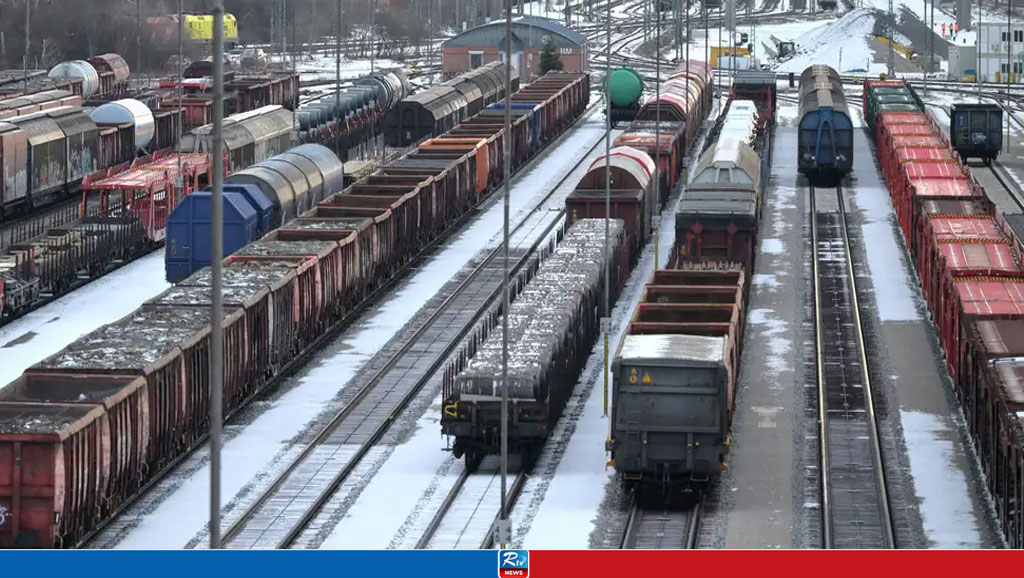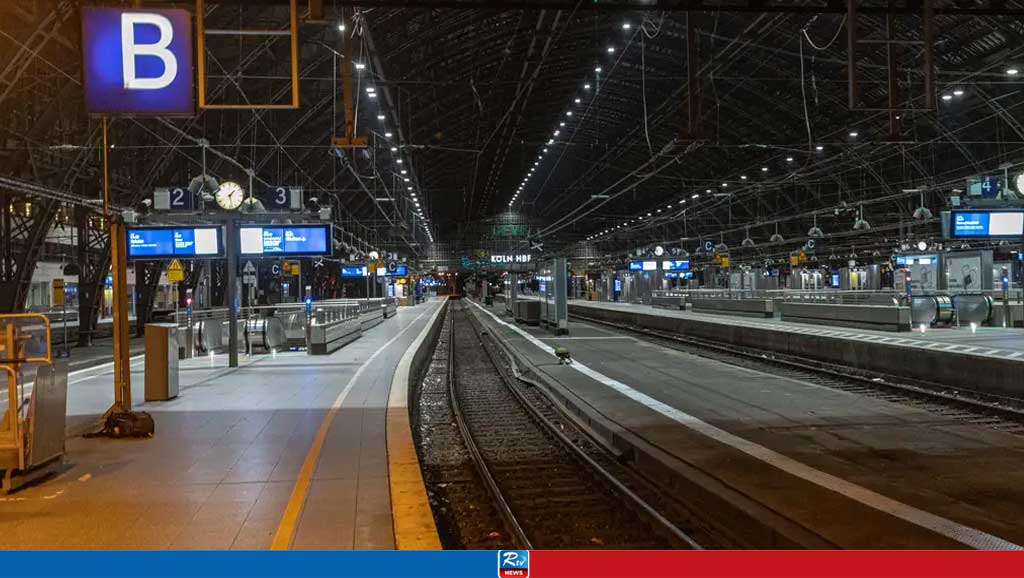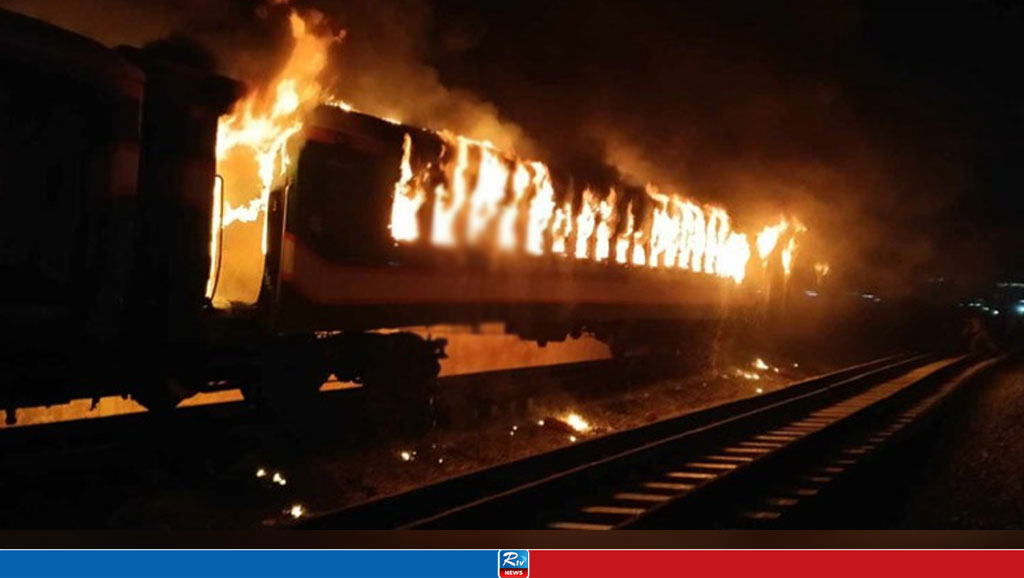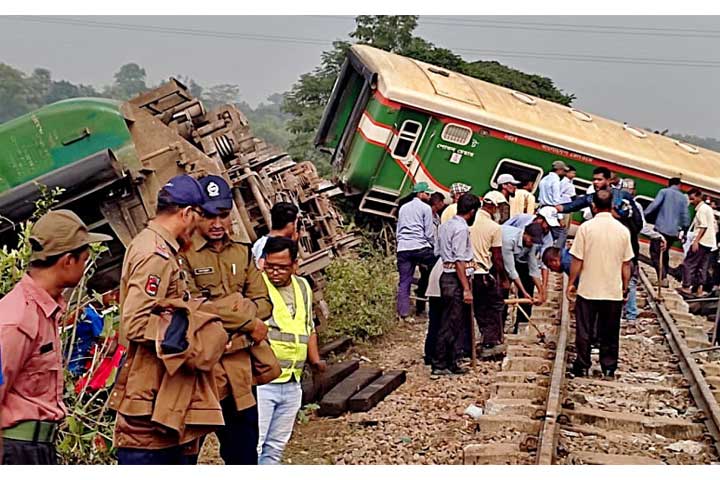German train strike could cost €1 billion
First a three-day strike at the beginning of January, now an unprecedented six-day strike: German train drivers' actions will hit companies, ports and consumers alike. But what are the actual consequences?
The wage dispute between Germany's state-owned rail operator Deutsche Bahn (DB) and the train drivers' union GDL is entering the next round.
The GDL called another strike on Monday, after paralyzing many rail services for three days at the beginning of January. This time, passenger transport will be affected from Wednesday morning (January 24 from 2 a.m. CET) until Monday evening, making it almost six days — and thus the longest strike in the history of the railroads in Germany. In freight transport, the strike is to begin on Tuesday evening and also end on Monday at 6 p.m., a total of 144 hours.
The strike is not only hurting Deutsche Bahn. It's also impacting other German firms that transport their raw materials or goods by rail.
In addition, the consequences will also be felt in neighboring countries. Nearly 60% of Deutsche Bahn's freight transport services are carried out across Europe. Six out of 11 corridors for freight transport in Europe run through Germany, according to the Federal Ministry for Digital and Transport.
As Thomas Puls of the German Economic Institute put it: "Germany is the logistical heart of Europe."
Cost will be hard to quantify
The costs of such strikes are difficult to assess. Without actual production losses, the costs would not be deducible from any statistic, according to Puls. Analyses of previous strikes showed that they can cause losses of up to €100 million ($110 million) per day.
Michael Grömling, head of economic research at the German Economic Institute, said the costs of a six-day strike would no longer increase linearly but would multiply in some cases.
"We are quickly looking at a billion euros in damage," he said.
In addition, the impact of the freight transport strike is set to be felt even afterward in the form of traffic disruptions. After the last freight transport strike, it took days for the traffic jams to clear up. Deutsche Bahn is forecasting a loss of around €25 million per day for the company alone.
Commerzbank Chief Economist Jörg Krämer estimates the strike will reduce value creation in just the transport sector by €30 million per day, which corresponds to 0.3% of daily gross domestic product.
"Much greater economic damage would occur if factories had to shut down their production due to supply problems," warned Krämer. "In addition, the rail strike is putting a strain on people's nerves and tarnishing Germany's already tarnished image as a business location."
Frank Huster, managing director of the German Freight Forwarding and Logistics Association, said the strikes could lead to logistics companies losing confidence in rail freight transport.
Its reputation was already suffering severely due to repeated technical failures, an extremely decrepit railway network and continuing infrastructure problems, he said. This is not a good starting position for the goal of transporting more goods by rail.
According to the 2021 German government coalition treaty, the market share of rail in freight transport is to increase to 25% by 2030. The current market share is 19%.
Freight transport by train is essential
A large portion of goods, about two-thirds, is transported via roads in Germany; just under one-fifth is transported by rail.
Nonetheless, freight transport by rail was very important, traffic expert Puls told DW. "Even if it's not that clear when we look at the market shares — a lot of rail transports cannot be processed in another way, or only with major difficulties," he said.
Large industries like the steel and chemical industry, for instance, are dependent on rail transport. Without black coal, delivered by rail, neither the steel industry's furnaces nor the power stations that secure the production of electricity can be operated. As far as several dangerous goods used in the chemical industry are concerned, rail transport is even required by law because of the reduced risk of accidents on trains.
Products used by the car industry, as well as finished vehicles, are also loaded onto trains. All vehicles designated for export are transported by train to the international port of Bremerhaven, where they're loaded onto car ships, said Puls. But what happens when trains are canceled? According to Puls, there aren't enough car carrier trucks to transport that many vehicles via roads.
Other freight service providers could benefit
Although Deutsche Bahn is the largest provider of rail freight transport (with a market share of over 40%), there are also many private providers covering the remaining freight transport volume. They won't be directly affected by strikes.
"Some 60% of the rail freight traffic is running as usual and often even reaches its destination better due to less rail traffic," said Peter Westenberger, managing director of the association Die Güterbahnen, in which DB Cargo's competitors are mainly organized. The private companies also occasionally pick up goods that DB Cargo is unable to transport due to the strike.
However, if the railroad's signalmen also go on strike, nothing will work. There would also be no more emergency runs, according to Puls. "Without central traffic control, no train will run," he said.
Fears of container jams in ports
Other parts of the logistics chain — such as ports — are also affected by the strike.
"As soon as ports run out of container storage space, there‘ll be huge problems," Puls said.
At the port of Hamburg, for instance, most containers coming in on ships continue their journey by train. Puls said switching to road transport isn't a realistic option.
"Probably we don't have enough trucks, and even if we had them, we would not be able to dispatch as many to Hamburg as are necessary to move the number of containers which are usually transported by rail out of the port," he said.
A view of containers in the Port of Hamburg
German economic slowdown partially alleviates strike consequences
However, the currently sluggish economic activity does help to alleviate the effects of the strike. When industrial production is operating far below capacity, it's easier to postpone production if goods are not delivered on time, said Puls. Nonetheless, costs are obviously still incurred for rescheduling production and logistics chains.
Moreover, large companies aren't completely unprepared, which will also alleviate the negative effects of the strike. All in all, supply chains have become more resilient in the wake of the COVID-19 pandemic, Huster said. Even in the absence of a strike, it wouldn't be unusual for a freight train to be delayed for a day, he added, so the industry had certain buffers and had set up storehouses for emergencies.
Due to the economic conditions, even the situation in the ports is unlikely to reach critical levels very quickly.
"In a better economic climate we would, with trains not running, reach the absolute limit after approximately five days," said Puls.
23 Jan 2024,21:14

















 Live Tv
Live Tv









